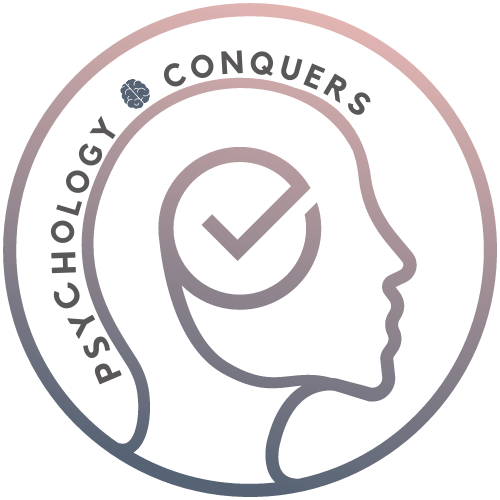
How Do You Build Your Self-Worth?
Self-worth comes from self-love, self-acceptance, and self-understanding. It is an internal state where you know full well that you are enough, capable of love and belongingness. Self-worth looks like giving yourself grace when you made a mistake and not judging yourself for not knowing all things. It could look like being believing in yourself and in what you can do even though you are still in the process. To make it simpler, self-worth is placing value on yourself and not losing that value regardless of the circumstances or situations. Self-worth believes that you can have a positive impact and do good.
Self-worth versus self-esteem
People usually have a hard time differentiating between self-esteem and self-worth. The key term for self-esteem is evaluating yourself. This includes your qualities, attributes, and character. It is how you view yourself. On the other hand, self-worth is your belief that you are loveable and valuable amid evaluating your traits.
Self-worth and self-esteem go hand in hand. But you can have low self-esteem but still have high self-worth because you believe in your innate worth. For example, knowing that you failed a test or not getting the job you want might affect your self-esteem. You tend to evaluate your qualities as lacking in a particular job. But it doesn’t mean that you’ll feel less valued because you know that the skills you have could still fit other job positions out there.
Situations that happen to you could, one way or another, affect your self-esteem primarily when you accomplish something, or you failed at something. But regardless of what happened, you just that you are worthy and valued that’s not based on external circumstances.
Factors affecting your self-worth.
- Childhood: Your relationship with your parents influenced the way you see yourself. As a child, they were the ones who showed you how to be treated. This is a crucial stage wherein you develop a sense of identity.
- Personality: With the childhood you experience, you begin to form your personality and character, which helps you see and value yourself. The experiences you have in every stage of your life affect you and your thinking patterns.
- External factors: Social media, your peers and friends, what you hear from people such as your teachers and leaders,
- Choice and belief: Many factors affected the value you’ve put in yourself. It could be high because your parents had high regard for you, which shaped you to think that you are good and enough in everything you do, or it could be the other way around. The peers you had, the experiences at school and work, social media’s message of being good enough, what you see in others, the list goes on when it comes to factors that come into play. However, as you grow older, this is also an opportunity for you to change beliefs and perspectives that aren’t aligned with your truth.
Here are some beliefs of people with high self-worth that you can start choosing and believing for yourself.
Belief and habits of people with high self-worth
“I am worthy even though I made a mistake.”
People with high self-worth don’t let their mistakes define them. They recognize they did something wrong, but it’s not something that dictates their worth. They apologize if they offended people because of that mistake, but that doesn’t diminish their worth. When they are grieving, they don’t do it alone. They share their burden with people to ask for support. They know their story deserves to be heard, and that’s a way for them to take care of themselves.
What I do is not who I am.
People with high self-worth don’t attach their identity to their job position, relationships, money, career, number of friends, or anything external that is impermanent. These people enjoy the things they have, but they know how to put boundaries with what they do and who they are. They know relationships could change. Fame, power, and money are unpredictable, and they know that these things would not always be there. With our without it, they know they are valued, and they are enough.
My feelings are valid, but it doesn’t define me.
People who know their worth recognize their feelings and don’t necessarily mean that they are always happy. They know that life could be challenging, but they are not afraid to feel. Instead, they know their feelings don’t define them. Every experience they have has a corresponding emotion. They know they can feel their feelings, but these emotions are not tied to their identity.
It’s okay to be alone and choose not to be lonely.
They are confident to say this because people with high self-worth understand that they don’t have to be where everybody is. They are not afraid to be alone and consider that as a time where they can grow themselves, even if no one sees it. It doesn’t mean that they isolate themselves. They love to hang out with closest friends, and family is joyful even if I miss out, but they also value time being alone. They believe that true friends will always welcome them, and if not, they will still be okay being alone. At the same time, they also know that the right people would come into their lives. As they value their alone time, they can create time and space for themselves by honoring their boundaries.
My response to my situation is matters more.
Having high self-worth doesn’t mean that what happens to you is always good. It doesn’t mean that you are always up on the clouds. But you know that you can’t always control your situation, and the things you are responsible for are you: thoughts, emotions, and behavior. You don’t let your situation victimize you. You don’t stay in a victim mindset. You don’t get stuck in being sorry for yourself. You believe in yourself and your strength. This doesn’t mean you don’t get down. You do. Everyone does. But it doesn’t stop you from moving ahead. You recognize your feelings head-on. When life is hard or sour, obstacles don’t stop you.
I pursue things I love, and I love the things I pursue.
People with high self-worth know their needs and don’t look for external validation to meet those needs. Instead, they ask themselves how they can pursue the things they love. They take care of themselves first, not because they are selfish, but because they can’t take care of others without caring for themselves first. They know that the extent they could love others is the extent they love themselves too. This is why setting aside time and investing in themselves is very important. They find joy in doing the things they genuinely love, and that’s aligned with their values.
I believe that the world is a mirror.
When people tell you things, it’s always because they have not yet accepted something on themselves. It’s not your fault that they judge you, and that’s also outside of your control. You don’t have to fix that because it’s the person’s choice. At the same time, this is also true if you are judging others. There are times that we feel annoyed or irritated by people because of some quality they have, and a lot of times, those qualities are also something that you have that you haven’t entirely accepted or recognized. That’s okay. The step here is to reflect on what makes you judge this person? What about them? And then try to contemplate if it’s something that you also see in yourself.
I know that there’s something greater than me
Having a person with high self-worth means that you know that the world doesn’t revolve around you. That makes you put things into perspective, at the same time, think that things are related and people are interconnected. You know the importance of making an impact and how maximizing your life contributes to the world, even if you don’t feel it all the time.
I always find something to be thankful for.
Because you detach your identity from the external things such as your circumstance, successes, and failures, you can find the good things daily. You believe that things are working out for your good. You are hopeful. That doesn’t mean that you turn a blind eye to the wrong things around, but you know where to focus.
My perspective and how I think matters a lot.
You know full well that how you think influences how you live. It has an overall impact on your life. You are very highly self-aware. You catch your thoughts when you know it’s self-sabotaging and discouraging. You don’t let your mind run on autopilot. Instead, you are intentional with your thoughts and don’t let them define you either.
What to do when you have low self-worth
- Recognize that you have low self-worth. Signs of having low self-worth could be:
- Always thinking of yourself as small and less compared with other people
- Always apologizing even if it’s not your fault
- You are placing your worth and identity on what you do. Thus, when things fail, you criticize and judge yourself harshly.
- It’s hard for you to forgive yourself and get over your past mistakes.
- You always put others first, and you feel guilty taking care of your needs first.
- You don’t speak up for yourself and always try to hide your emotions just so the people around you would validate you.
- You find validation from people
There could be other signs of having low self-worth. It doesn’t mean that you have to have all that to say that you have low self-worth. Sometimes it could just be one or 2 of that. It depends. You are also the one to evaluate if your self-worth is at a healthy level or not. You know how it could affect you and your life. But the first step to overcoming them is to recognize them first.
- Catch your internal dialogue. What does your inner voice say? Is it always negative? Is it always making you feel down? Does it focus on what you didn’t do or the mistakes you made way back? When this happens, don’t fall into that trap. Instead, catch it and plant new thoughts in your head. Recognize that it doesn’t mean you have these thoughts that you’ll just let it be. If you see that you have self-sabotaging ideas, acknowledge them, but take a pause and ask yourself whether you’ll believe it or not.
- Direct your focus internally. A lot of people put their worth in external things such as accomplishments, achievements, productivity, success, failures, qualifications, number of friends, number of people who liked your social media post, your grades, your performance rate, and the list goes on. Whatever list you have, most of it points outward and not inward. Worth is not measured. That’s the point. Your worth as a person can never be diminished by anything or any more as long as you don’t let it. You are worthy regardless you have thousands of likes or just a few likes. You are worthy even if you made a mistake or were part of the most productive employee. Look inward. You have qualities that matter. You have a heart. You have a purpose. Your identity is not on the things outside of you.
- Daily affirmations. If your thinking pattern has always been negative, then it’s time to change that and have some daily affirmations that would help you see the good and great in you. You don’t have to believe these affirmations all at once precisely. But reminding yourself of that is already a step towards embracing how worthy you are.
- Choice is everything. Choosing to be worthy is a daily decision for most people, especially those who have been through an unpleasant childhood or have been through the crappiest experiences. But the choice is always something that you can control. You can choose to be worthy or not. It’s not going to be the people around you who’ll set that for you. It could be simple as this. You are worthy because you are a human being and created for a purpose in this world.
Self-worth might look like a vague concept, or it could be hard to measure or grasp. Simply defining it is seeing the value in yourself regardless of the external factors, whether good or bad. A person with a healthy level of self-worth can take care of themselves without feeling bad and know that it starts within and that they don’t need to find that validation from others.
Which belief speaks to you the most?
Verticals / Wallpapers






